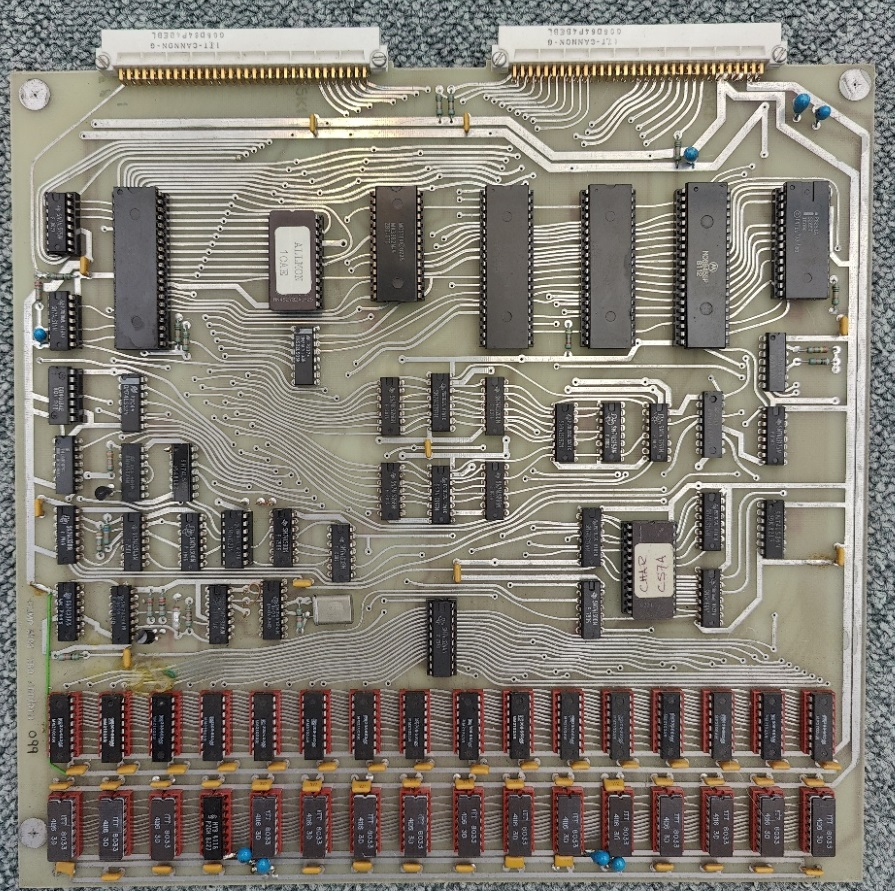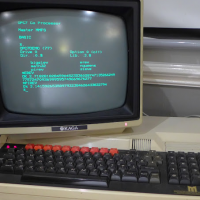History question - first RTR BBC Basic(s)
Hope this is an acceptable question: I have a vague memory that Richard had implemented at least some of a Z80 BBC Basic implementation even before Acorn shipped the BBC Micro. Is there anything in that at all?
Followup question: I read somewhere of some system which shipped with both an RTR BBC Basic and another Basic - was that Acorn's Z80 second processor for the Beeb, or some other system?
Followup question: I read somewhere of some system which shipped with both an RTR BBC Basic and another Basic - was that Acorn's Z80 second processor for the Beeb, or some other system?
0
Comments
-
I believe the other BASIC shipped with CP/M was Mallard BASIC by Locomotive Software, the same people who did the Amstrad CPC BASIC. I have a vague recollection Mallard was also shipped with the Amstrad PCWs (as they also had CP/M).1
-
Now that I have CP/M working on my PiTubeDirect BBC Master, I can confirm that "PBASIC" is Mallard BASIC.0
-
Thanks! (I wonder what the P is for... is it a silent P perhaps.)0
-
Professional, I think I recall seeing somewhere along the way.
(Obviously I would disagree with that, BBC BASIC is far more professional, with better support for good programming practice!)0 -
That makes sense!0
-
He may have had it running on the Z80-based test machine he developed for the BBC (which I've heard described as the "Richard Russell Board"). Several copies of this machine were made for personal use by BBC techs. But yes, Richard has said at least he was working on releases of BBC BASIC for Z80 before the BBC Micro came out - it might even have been on Stardot.0
-
Thanks - you've prompted me to revisit the two part reminiscences at bbceng.info, where we seeIn parallel with this work I had been upgrading the BBC's Zelda system to run CP/M and my Z80 version of BBC BASIC. It's a little known fact that the pre-recorded software data cassettes produced by BBC Publications were not recorded from the output of a BBC Micro but instead from a special piece of equipment, based on Zeus units, programmed in BBC BASIC (Z80)! This had a much better analogue output stage than the BBC Micro, and produced tapes which had a reputation for reliability even after mass duplication.
See also this Stardot post.
0 -
I presume you are referring to the CRF/RTR board, which was most definitely not "developed for the BBC" and is more correctly referred to as the 'Colin Foddering board' (CRF), because it was his idea and he did the black-tape PCB layout.He may have had it running on the Z80-based test machine he developed for the BBC (which I've heard described as the "Richard Russell Board").
It's not to be confused with the UN26S/31 Zeus unit which was developed for the BBC. That was just a CPU unit with no memory or video capabilities (apart from a boot EPROM) whereas the CRF/RTR was self-contained, albeit text only and needed a second card for (monochrome) graphics.
The example shown below was working when it was last powered up (but that was many years ago). You probably can't read it in the picture but along the edge it says 'COMP SIDE Z80 CRF/RTR':
1
